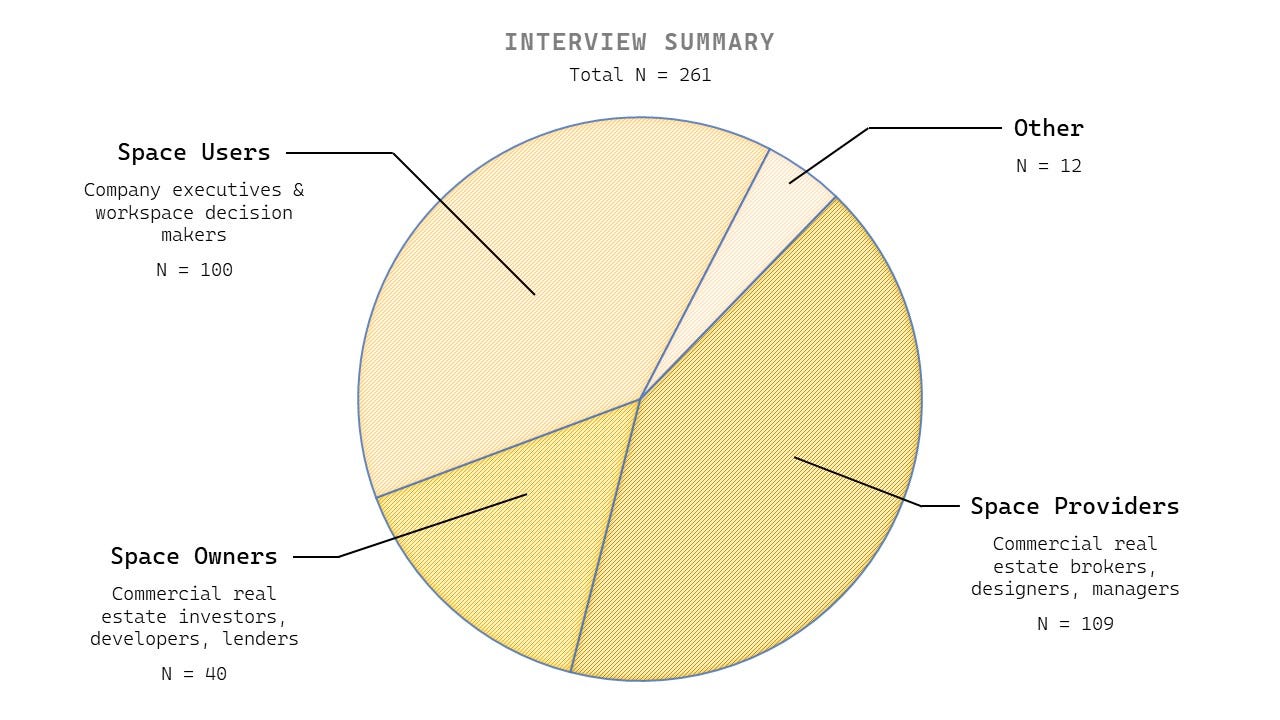9 predictions for the future of work
My grounding truths as we enter the new year -- and a bit on sources
2023, hello!
Over the past year, my team and I have interviewed more than 250 expert stakeholders involved in the questions of future of work & return-to-office. The perspectives we heard varied radically; few executives could even say where their employees will work next year.
First some housekeeping — if you haven’t subscribed yet, please do!
As we kick off the new year, I’ll start by sharing the 9 beliefs I hold most strongly, so strongly in fact that I would call them my truths. These 9 truths are foundational to the story I will be taking you on in the coming weeks and months, and I believe they offer a glimpse into not only what the future of the office looks like, but how the most successful organizations will be thinking about work in the future.
Here they are:
The fundamentals of knowledge work.
1
We are all creatives. No matter our profession, the work we are uniquely hired to do is creative work. All the rest is busy work.
2
The environment in which we create affects what we are able to produce and how we feel producing it. To do effective creative work, where we work should be the first thing we think about in the morning.
3
Those who understand and master environment will have a massive structural advantage — creating higher quality output, faster and with more joy.
WFH & the 21st-century office.
4
Managing a fully-remote team requires an entirely new skillset and approach. It will be a decade or longer, if at all, before we understand at an organizational level what remote-first requires. Until we do, most fully-remote companies will fail.
5
This is because few individuals (really, only true artisans - writers, musicians, etc.) have independently mastered their physical environment. Expecting an employee to master their environment without structure, support, and incentive is unrealistic.
6
In 2023, as companies realize #4 and #5, most will instead opt for a mandatory-hybrid working norm. This will be anywhere from 2-4 days in person, in the same place, every week.
Going hybrid.
7
Successful hybrid practices will involve:
Dedicated office space — space with your name on it that feels uniquely yours.
Dedicated work-from-office days that bring everyone in, together, at once.
Re-alignment of activities to ensure what gets done in-office and at-home, respectively, is suit-for-purpose.
8
The office real estate market — owners, landlords, brokers & other intermediaries — is not built to efficiently provide for these needs. New entrants will emerge with new modes of space-finding, adapting, and leasing.
9
Companies that ‘do hybrid right’ will see:
Higher quality output
More innovation
Less burnout and improved retention
A bit on our sources
I began on this journey when I arrived at Stanford in 2021 (see ‘Young and Virtual’), and began conducting more formal interviews in the Spring of 2022.
With the help of several of my colleagues — Colin Woolway, Kelly Jiang, Elspeth Huscher and David Steiner — we’ve had the opportunity to listen to and learn from around 250 experts on the topic, and we’re just getting started.
The diversity of our sources has been most impressive:
Role: we interviewed users of space — primarily, those in decision-making roles regarding physical workspace. At small companies, this is typically the business owner or CEO; at a larger company, this would be a real estate or HR executive. We also spent significant time with providers of space — that is, intermediaries that help make space accessible (think brokers, designers, attorneys, etc.). The remainder of our time has been mostly spent with owners of space, including executives and asset managers at public real estate investment trusts (REITs), family offices, and private equity firms.
Geography: across the continental U.S., with fascinating differences in experience from the Sunbelt to the East Coast, Midwest, and West.
Industry: the primary focus was on knowledge work — typically jobs that require a college education and that get done in large part through computers. Within this category, our interviews ran the gamut of corporate back-office staff to professional service & creative firms to tech start-ups. On the provider side, we spoke with individuals at all the major shops (namely, CBRE, JLL, Cushman, Colliers, and Newmark) as well leaders of independent, boutique firms.
Company size: We spoke with everyone from solo business owners to almost a dozen Fortune 500 executives.
Lastly, a quick note on editorial process: where possible and appropriate, sources will be anonymized to protect the confidentiality of interviewees.






